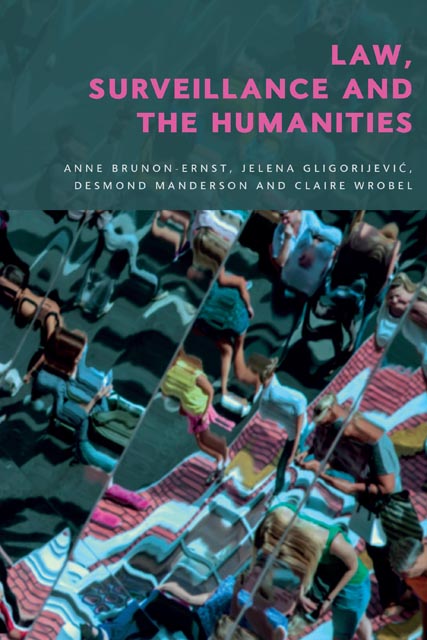11 - Fear of the Dark: The Racialised Surveillance of Indigenous Peoples in Australia
Published online by Cambridge University Press: 18 November 2023
Summary
I. Introduction
The very nature of settler colonialism is to refuse to see our settler selves clearly and to fail to acknowledge how as settlers we act in the world. We stand before a mirror and see ourselves distorted and disfigured to fit a white nationbuilding agenda that proclaims we are part of a nation where fairness prevails. In Australia the fair of face do rise, not so much through natural talent but because, as beneficiaries of colonisation, we are standing on the necks of others and especially of Indigenous others. It is with these facts very clearly etched in my mind that I commit words to print as a person of settler descent writing on surveillance and the colony. I do so in an attempt to interrogate the culture I was born into, a coloniser culture that perpetrates violence and brutality against those perceived as deficient due to their race and that privileges my white skin. In this sense I write from a place of autoethnography informed by critical race theory and Indigenous scholarship, with the intent to problematise surveillance as a tool of the occupation of the place now known as Australia. I also write from the unceded lands of the Wathawurrung people on the south coast of the continent and pay my respects to their Elders past and present.
This chapter is concerned with state surveillance of Aboriginal peoples as a tool of governance to maintain the occupation of Australia. It asks what surveillance contributes to the occupation, how it operates and how it shores up occupier sovereignty. It does not propose to write in detail about Aboriginal experiences of surveillance; Aboriginal people themselves are better placed to write on such matters. Rather, my object of analysis is not ‘them’ (Aboriginal peoples) but settler colonialism and surveillance as a form of power belonging to it. This discussion begins from the premise that Australia is occupied territory and that settler sovereignty is exercised through what Aileen Moreton-Robinson describes as a race war to control the lives of Indigenous people. For the most part, this race war no longer looks like armed conflict but rather is today ingrained in the structures and actions of governmental institutions. Racism becomes normalised in a culture built on racism, to the point where it becomes so institutionalised and so socially acceptable that it is invisible to those unaffected by it.
- Type
- Chapter
- Information
- Law, Surveillance and the Humanities , pp. 216 - 234Publisher: Edinburgh University PressPrint publication year: 2023

